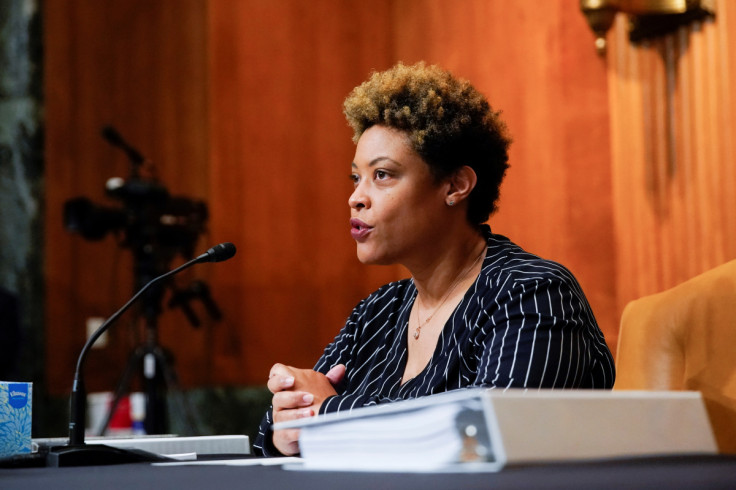U.S. Senate Democrats, Republicans To Battle Over Spending Amid Bank Collapse

The U.S. Senate Budget Committee begins debate on Wednesday over Democratic President Joe Biden's $6.8 trillion budget proposal, as the collapse of a pair of banks threatens to ratchet higher the stakes of a partisan standoff on spending and debt.
Biden's proposal is an early step in a negotiation over fiscal 2024 spending with Republicans who control the U.S. House of Representatives, who say they will refuse to raise the nation's $31.4 trillion debt ceiling unless Democrats agree to sharp spending cuts.
Failure to do so could lead to an unprecedented default by the federal government which would rattle the global economy and markets, which have been volatile following the collapse of Silicon Valley Bank and Signature Bank.
White House budget director Shalanda Young will testify about the Biden plan, which calls for nearly $5 trillion in tax increases on the wealthy and large corporations to help offset the deficit and shore up Medicare.
Republicans rejected the proposal outright, with the hardline House Freedom Caucus last week issuing a counterproposal that includes a near freeze on discretionary spending and an end to multiple Biden programs.
"I want to be clear: America is in real danger due to decades of gross fiscal mismanagement, but President Biden has done nothing but make this situation worse," Republican Senator Rick Scott said in an open letter to Young on Tuesday which pelted her with questions on inflation, job market participation, interest costs, the future of Social Security and other issues.
Senate Budget Committee Chairman Sheldon Whitehouse and other Senate Democrats have said Biden's plan would lower costs for households, reduce deficits by nearly $3 trillion, protect the Social Security retirement program and extend the life of the Medicare health insurance program.
"Republicans have pledged to use draconian cuts to pro-growth investments for everyday Americans," Whitehouse said in a statement on Tuesday.
Leaders of both parties say they will not cut Social Security and Medicare which currently account for about one- third of the federal budget. Not touching those, or failing to cut defense spending, leaves little chance of addressing the government's budget deficit.
A presentation by the nonpartisan Congressional Budget Office to House lawmakers last week laid out options for addressing the deficit and projected that spending cuts would have substantially less effect on the deficit than increased tax collections.
Republicans who control the House of Representatives are working to release their own budget in coming weeks, which lawmakers have said could contain up to $150 billion in cuts for domestic nondefense spending. Republicans are determined to avoid tax hikes and to preserve tax cuts for the wealthy implemented under former President Donald Trump.
Forecasters warned on Tuesday that the bank collapses could push closer the deadline to raise the debt ceiling or risk default.
Experts had recently said the Treasury could stave off a default until sometime between early June and September, depending on the federal government's cash balances.
But Democrats and Republicans could have a much shorter time frame due to the bank collapses, which required the Federal Deposit Insurance Corp to make a record withdrawal of funds from the Treasury General Account.
© Copyright Thomson Reuters 2024. All rights reserved.











